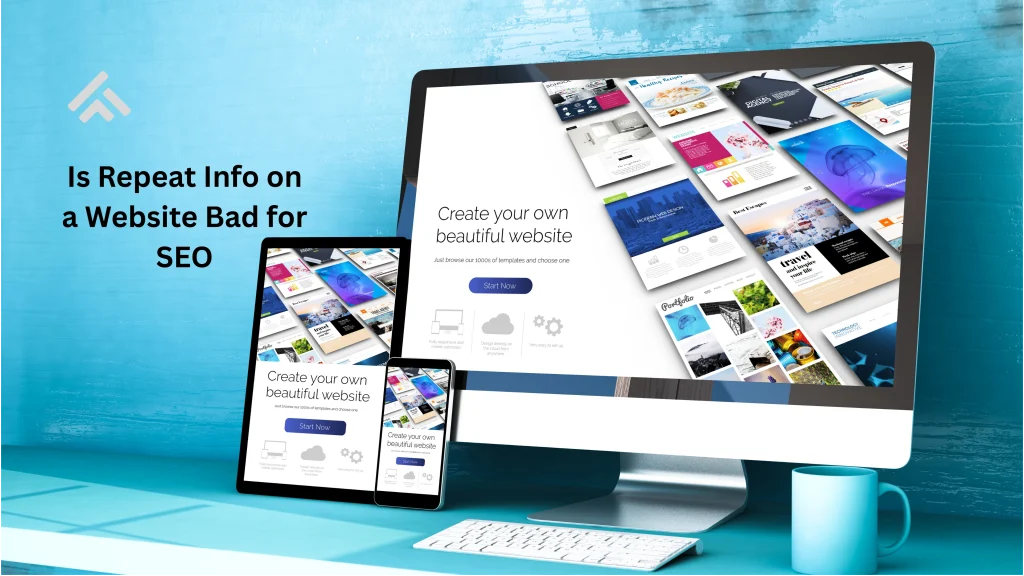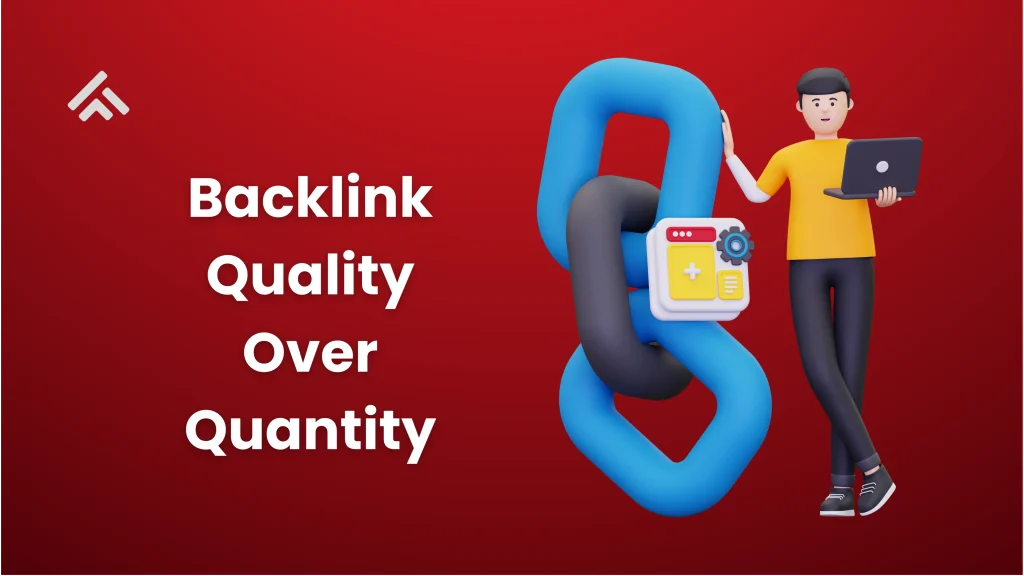SEO, or Search Engine Optimization, is very important for any website. It helps your site show up on search engines like Google. When people search for things related to your site, good SEO makes it easier for them to find you. Without SEO, your website might stay hidden on later pages, and fewer people will visit it. This means less traffic and fewer chances to grow your business or share your message.
Good SEO improves your website’s visibility and credibility. It also helps your site load faster and be easy to use, which visitors like. When your website ranks higher in search results, more people trust it. This trust can lead to more clicks, sales, or sign-ups. So, SEO is not just about search engines; it’s about making your website better for real people too.
Table of Contents
What Is Repeat Information on a Website
Repeat information on a website means having the same or very similar content appear on multiple pages. This can be exact text, sentences, or even whole paragraphs repeated across different parts of the site. For example, if your “About Us” section is copied word-for-word on several pages, that counts as repeat information.
This often happens because websites use templates or standard descriptions for products or services. Sometimes it is unintentional, like when content is copied to save time. Other times, it happens because the site owner wants consistency. While some repetition is normal, too much can create problems.
Search engines like Google may get confused when they see the same content on different pages. They may not know which page to show in search results. This can lower your site’s ranking and reduce traffic. Visitors may also find repeated content boring or unhelpful.
Knowing what repeat information is helps you fix these issues. It’s important to keep your content unique and useful. This way, both search engines and visitors will find your website better and more valuable. Just like repeating content, using other pages’ images might also raise SEO concerns.
Why Do Websites Have Repeat Content
Websites often have repeat content for several reasons. One common cause is the use of templates. Many websites use the same design and layout across different pages, which can include repeated sections like headers, footers, or navigation menus. These parts may have similar or identical text, leading to repeated content. This kind of repetition is usually necessary for a consistent user experience.
Another reason is product or service descriptions. Online stores, for example, might use the same description for similar products or list the same information in different places. This can cause repeated content across many pages. Sometimes website owners copy content from other pages to save time, without realizing it might harm their SEO.
Some websites also repeat information intentionally for legal or branding reasons. For instance, disclaimers or privacy policies appear on many pages. While this kind of repetition is okay, too much identical content can confuse search engines and affect rankings. Understanding why repeat content happens helps you manage it better.
How Search Engines View Repeat Content
Search Engines Aim to Show the Best Results
Search engines like Google want to show users the best and most relevant results. When they find repeat content on a website, they may get confused about which page to rank higher. They try to avoid showing the same information multiple times in their results.
Impact of Repeat Content on Rankings
If several pages have very similar or identical content, search engines might choose only one to display, or sometimes none at all. Repeat content can make search engines think a website is trying to trick them by copying content. This can lower the site’s overall ranking.
Why Unique Content Matters
Search engines prefer unique and original content because it provides more value to users. When content is repeated too much, search engines may split the ranking power between those pages, weakening each page’s ability to rank well.
When Repeat Content Is Acceptable
Not all repeat content is bad. Search engines understand some repetition is normal, like navigation menus or legal information. The problem happens when large sections of content are copied across many pages without meaningful differences.
Negative Effects of Repeat Info on SEO
Lower Search Engine Rankings
When your website has too much repeated content, search engines may struggle to decide which page to show. This can cause all pages with repeat info to rank lower or not appear at all in search results. Lower rankings mean fewer visitors find your site.
Risk of Duplicate Content Penalties
Search engines may view repeated content as an attempt to manipulate rankings. While penalties are not always automatic, your site could be flagged for duplicate content. This can harm your site’s reputation and search visibility.
Diluted Page Authority
Repeat content spreads the value of links and keywords across multiple pages. Instead of one strong page, you end up with many weaker pages competing against each other. This dilutes your site’s overall authority and SEO strength.
Poor User Experience
Visitors don’t like seeing the same information again and again. Repeated content can make your site boring and harder to navigate. This may lead to higher bounce rates, which can also hurt your SEO over time.
When Repeat Information Is Not Harmful
Repeat information isn’t always bad for SEO. Some parts of a website, like menus, headers, and footers, appear on every page. This helps visitors navigate easily. Search engines expect these repeated sections and do not see them as a problem.
Legal texts like privacy policies, terms of service, and disclaimers are also repeated on many pages. These are important and necessary for your website. Search engines understand this and usually do not penalize sites for having them.
Repeating your brand name, tagline, or key messages can help visitors remember your site. As long as the main content on each page is different, repeating these small parts won’t hurt your SEO.
Sometimes, websites share similar information but use different words or phrases. This kind of repetition is normal and can help your site appear for more search terms. Using synonyms and related phrases adds value without causing SEO issues.
Tools to Identify Repeat Content on Your Website
Google Search Console
Google Search Console helps you monitor your website’s performance in search results. It can alert you to duplicate title tags or meta descriptions, which often signal repeat content. It’s a free tool that gives valuable insights into how Google sees your site.
Copyscape
Copyscape is a popular tool to find duplicate content on the web. You can enter your page URLs or content, and it will check if similar or identical content exists elsewhere online or on your own site. It’s useful for spotting copied or repeated text.
Screaming Frog SEO Spider
This tool crawls your website like a search engine. It identifies duplicate content by checking page titles, meta descriptions, headers, and content. Screaming Frog is powerful for large sites and offers detailed reports to help fix issues.
SEMrush and Ahrefs
Both SEMrush and Ahrefs are SEO platforms with features to detect duplicate content. They scan your website and highlight repeated pages or sections. These tools also provide suggestions to improve your site’s SEO overall.
How to Fix and Optimize Repeat Content
Rewrite or Create Unique Content
The best way to fix repeat content is to rewrite pages so each one has unique and valuable information. Avoid copying text from one page to another. Instead, add fresh details or present the same ideas differently to make each page stand out.
Use Canonical Tags
If you have similar content that needs to exist on multiple pages, use canonical tags. These tags tell search engines which page is the “main” version. This helps avoid confusion and ensures the right page gets credit for ranking.
Apply 301 Redirects
When you have duplicate pages that aren’t needed, use 301 redirects to send visitors and search engines to a single, relevant page. This combines ranking signals and prevents splitting authority across similar pages.
Improve Internal Linking
Organize your site’s internal links to point to the most important pages. This helps search engines understand which pages matter the most. Clear linking also guides visitors smoothly through your site.
Use Noindex Tags When Necessary
For pages with repeat content that you want to keep but don’t want search engines to index, add a noindex tag. This hides those pages from search results, reducing duplicate content issues.
Conclusion
Repeat information on a website can sometimes cause problems for SEO. It can confuse search engines and lower your rankings. But not all repeated content is bad. Some repetition, like menus or legal text, is normal and needed.
To keep your SEO strong, make sure most of your content is unique and useful. Fix repeated content when it’s unnecessary. This helps search engines and visitors find the best pages on your site. Taking care of repeat info is important for your website’s success.



